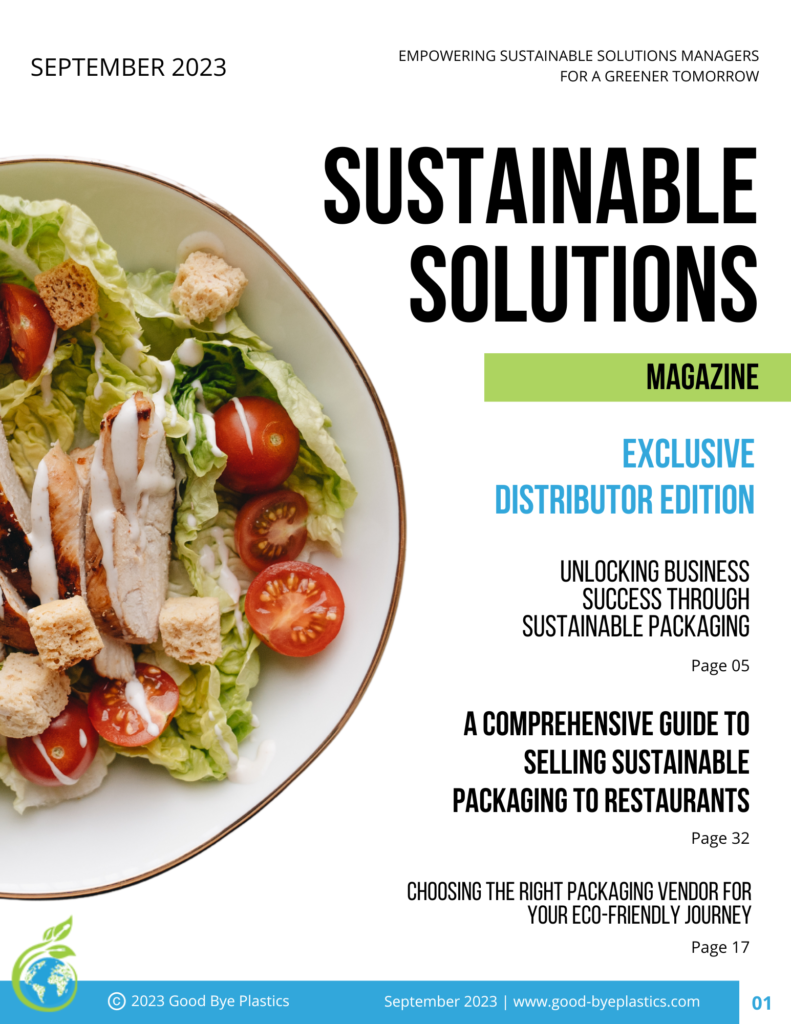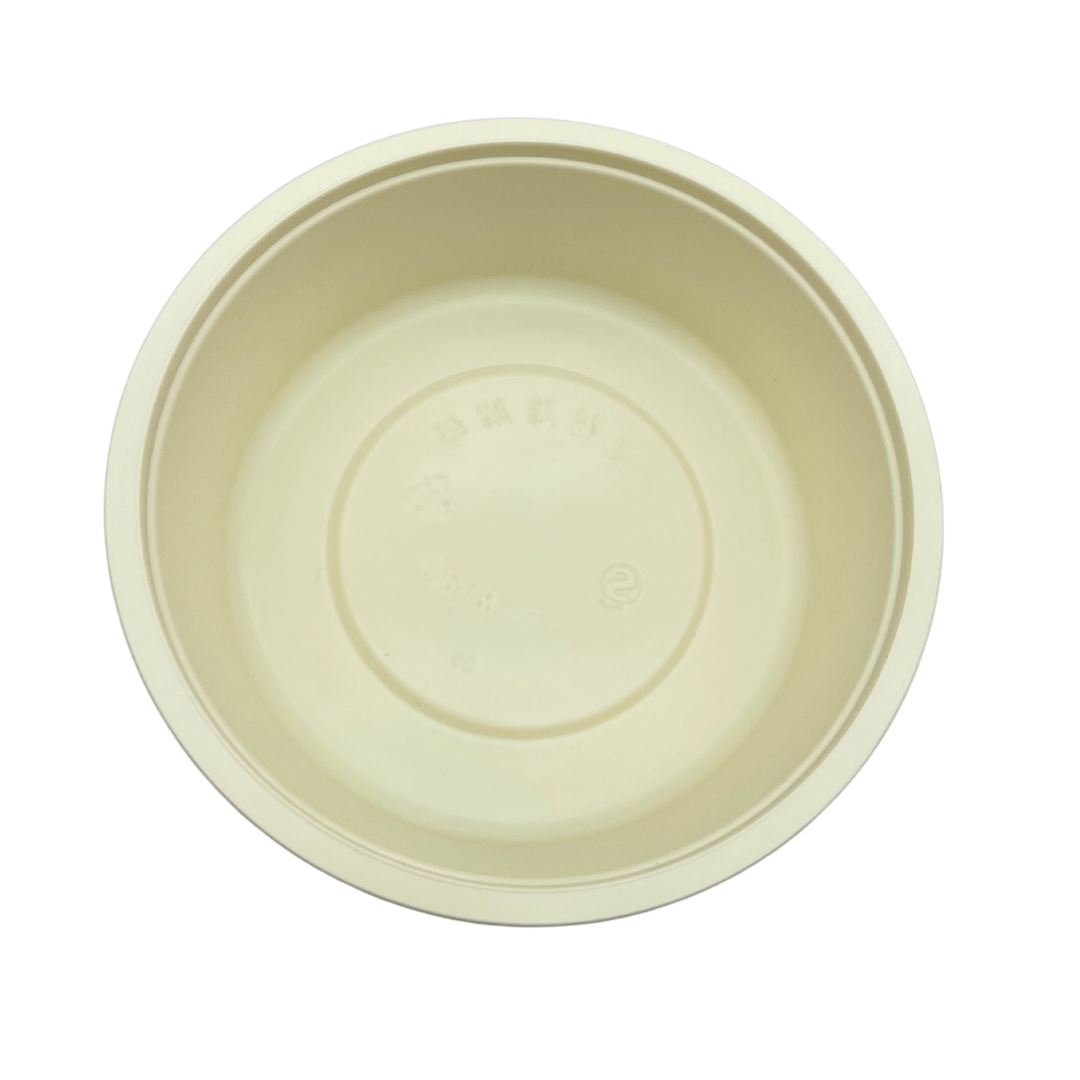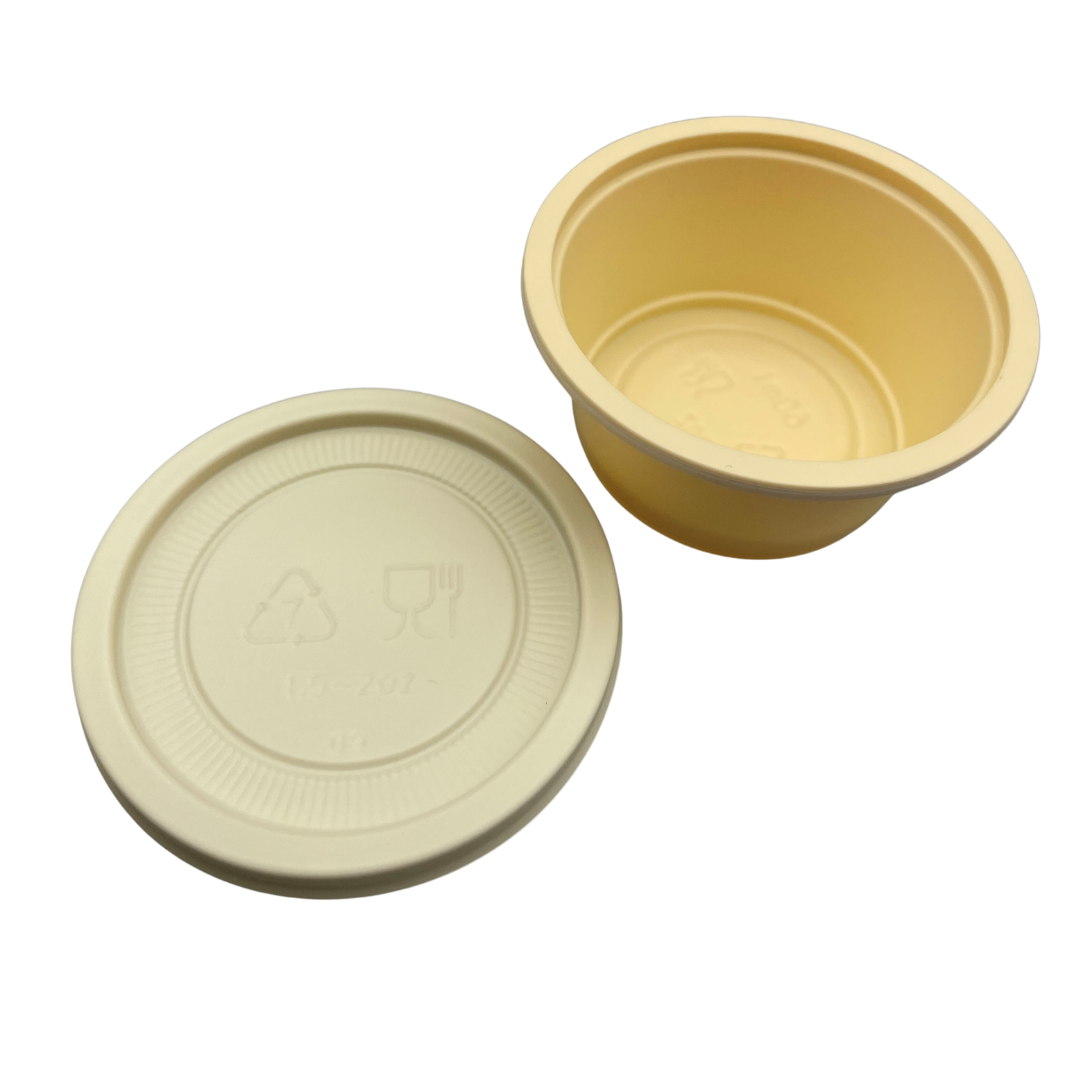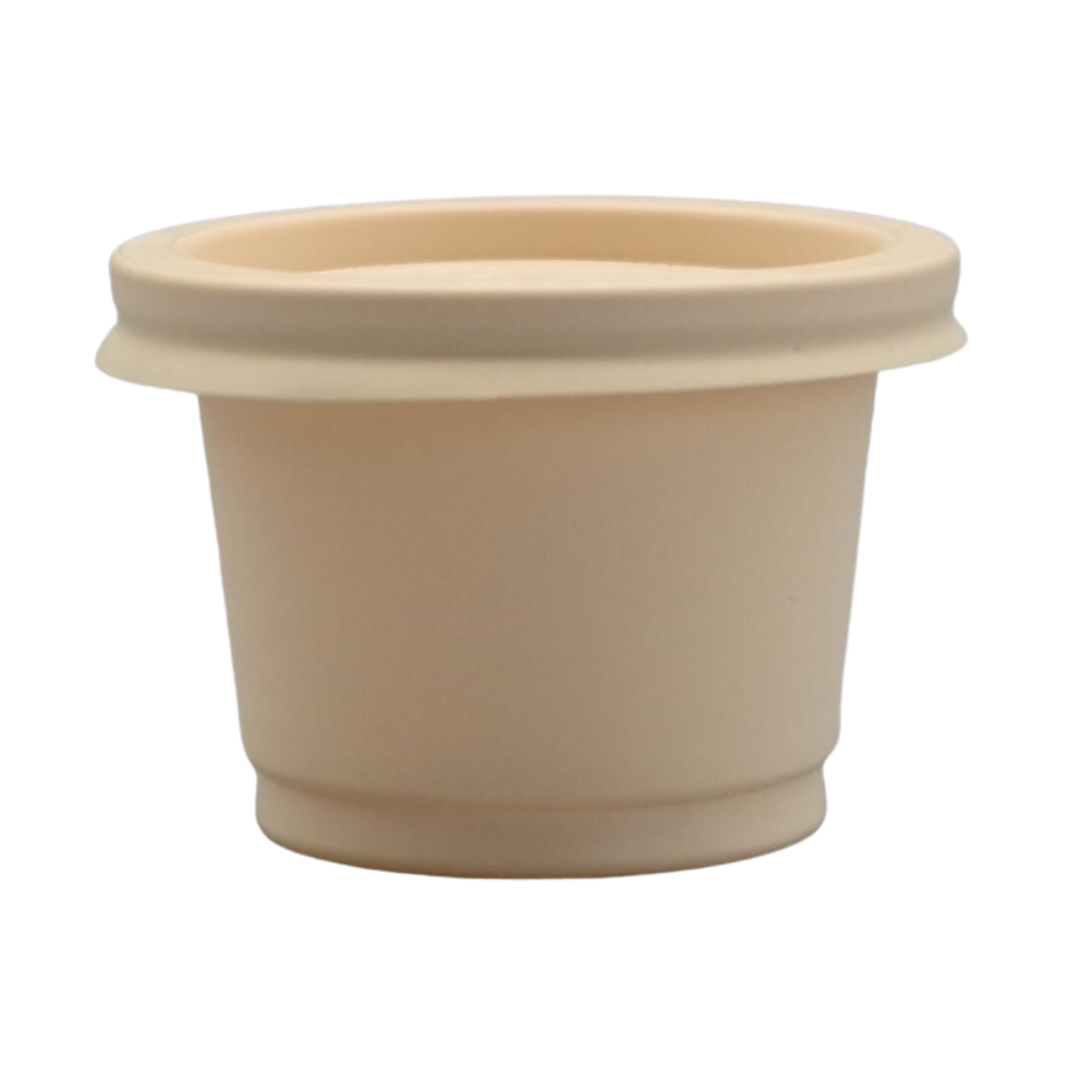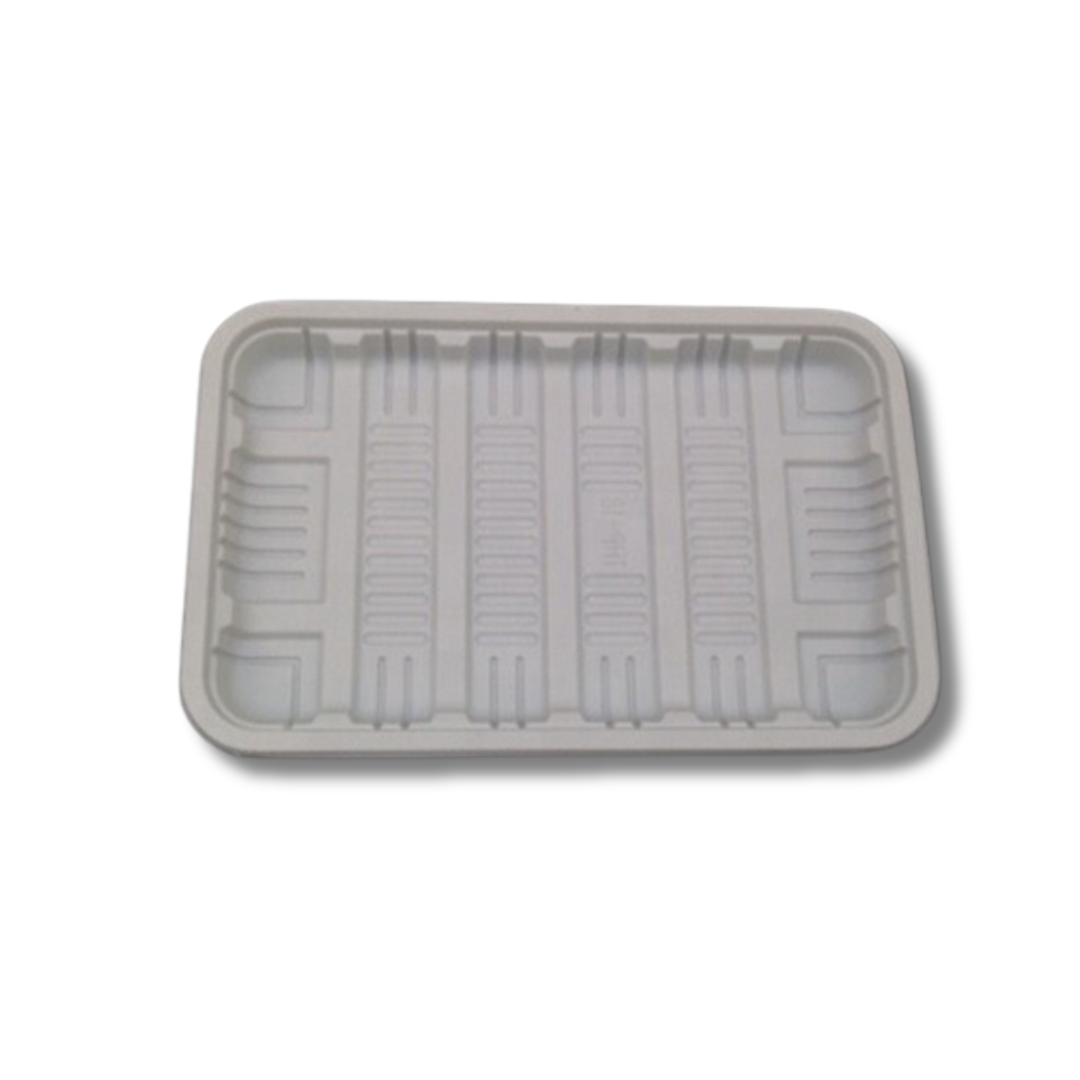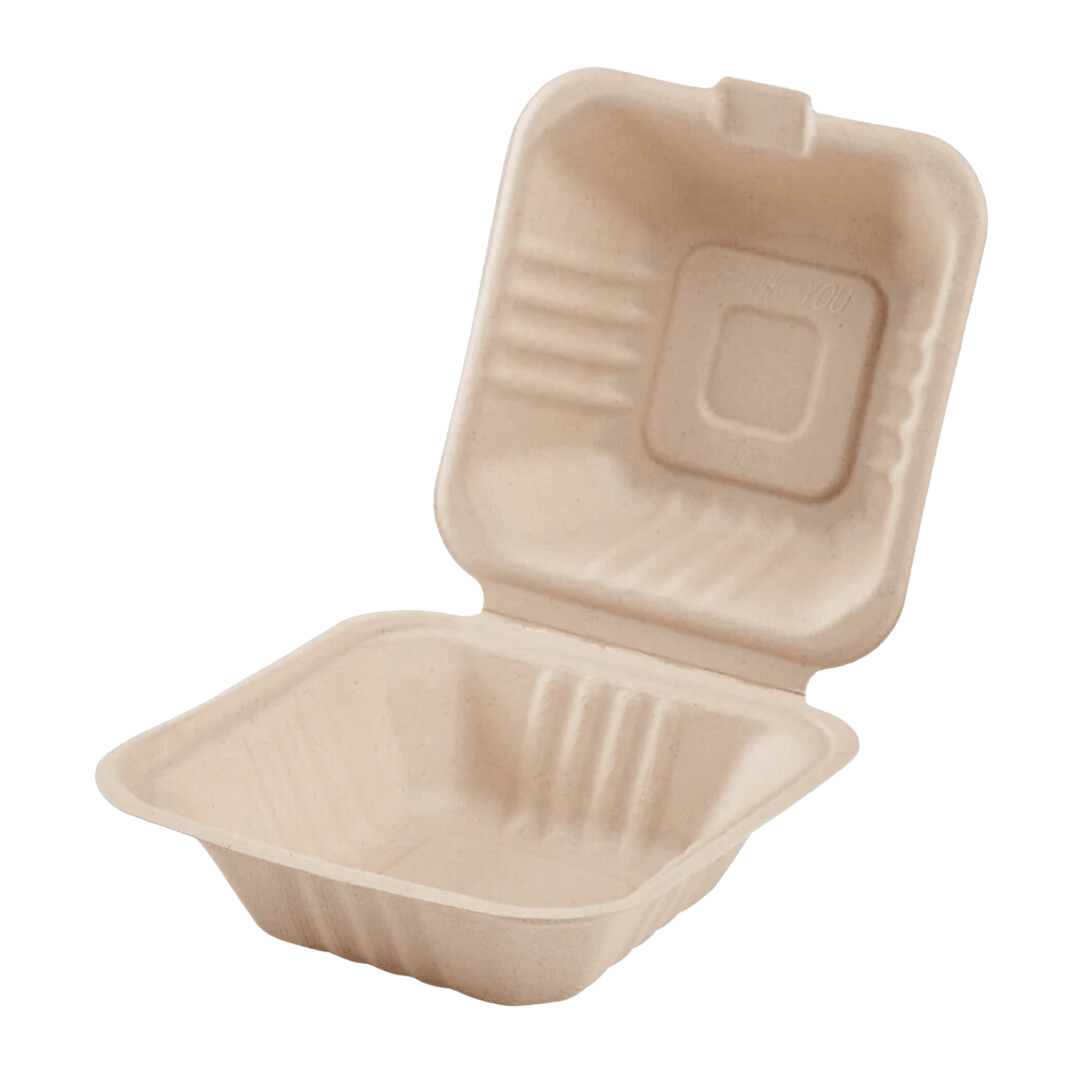Eco-Friendly Cornstarch Corn Based Packaging
Cornstarch your Eco-Friendly Packaging Solution. Derived from renewable corn resources, this material is biodegradable and compostable, significantly reducing our reliance on finite resources. Its adaptability in crafting a range of products makes it a sustainable choice for conscious consumers. While it may have a shorter lifespan than traditional plastics, its positive environmental contribution is invaluable.
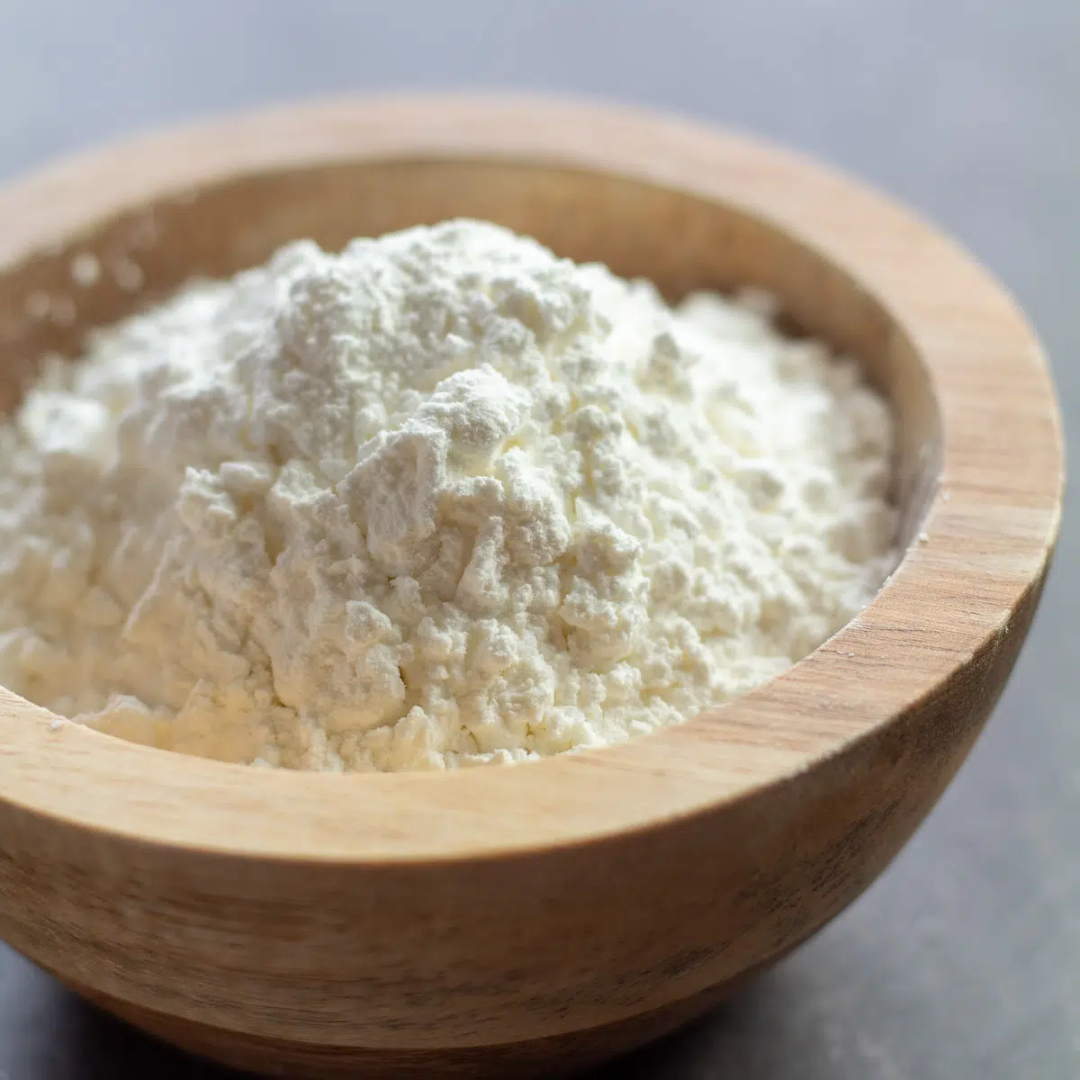


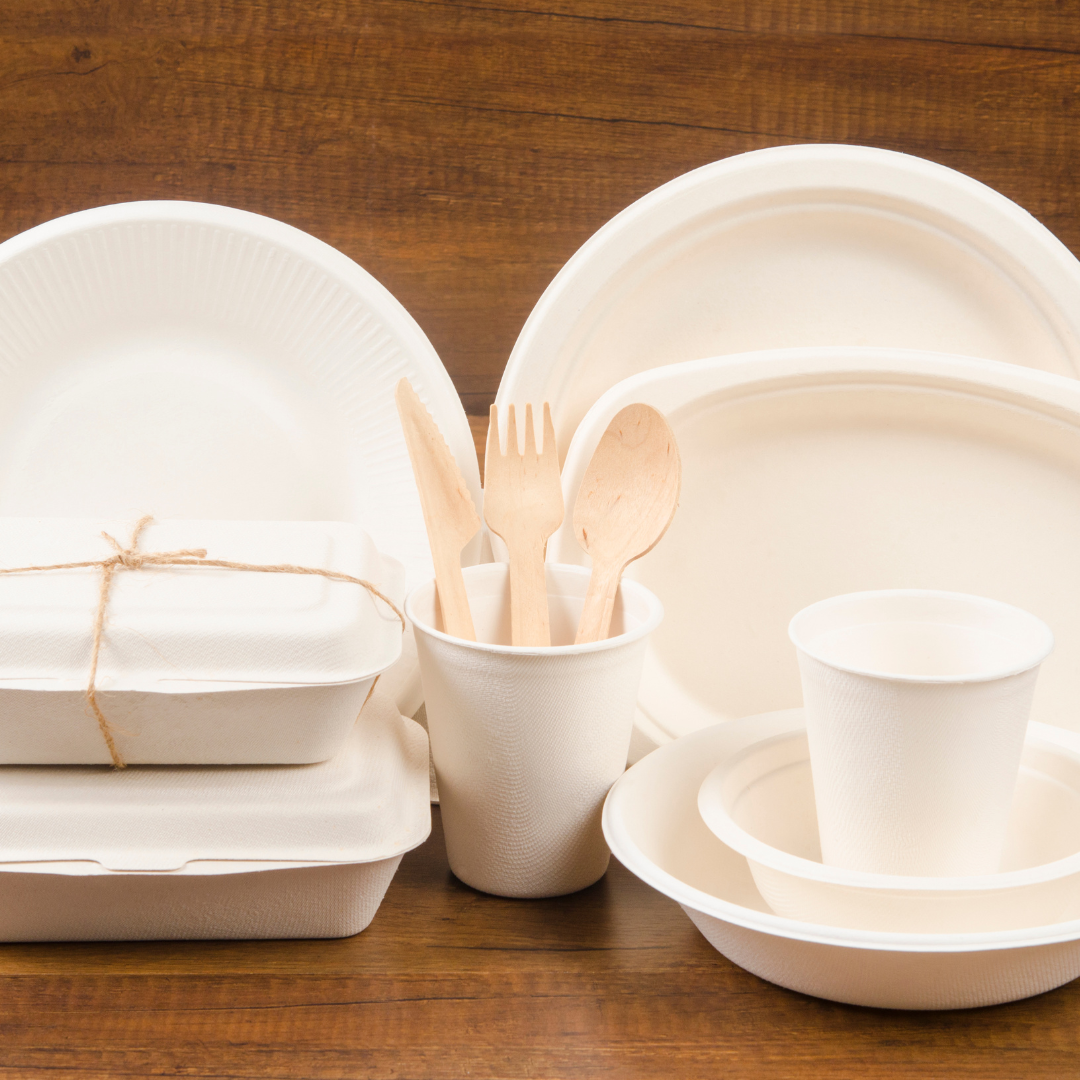
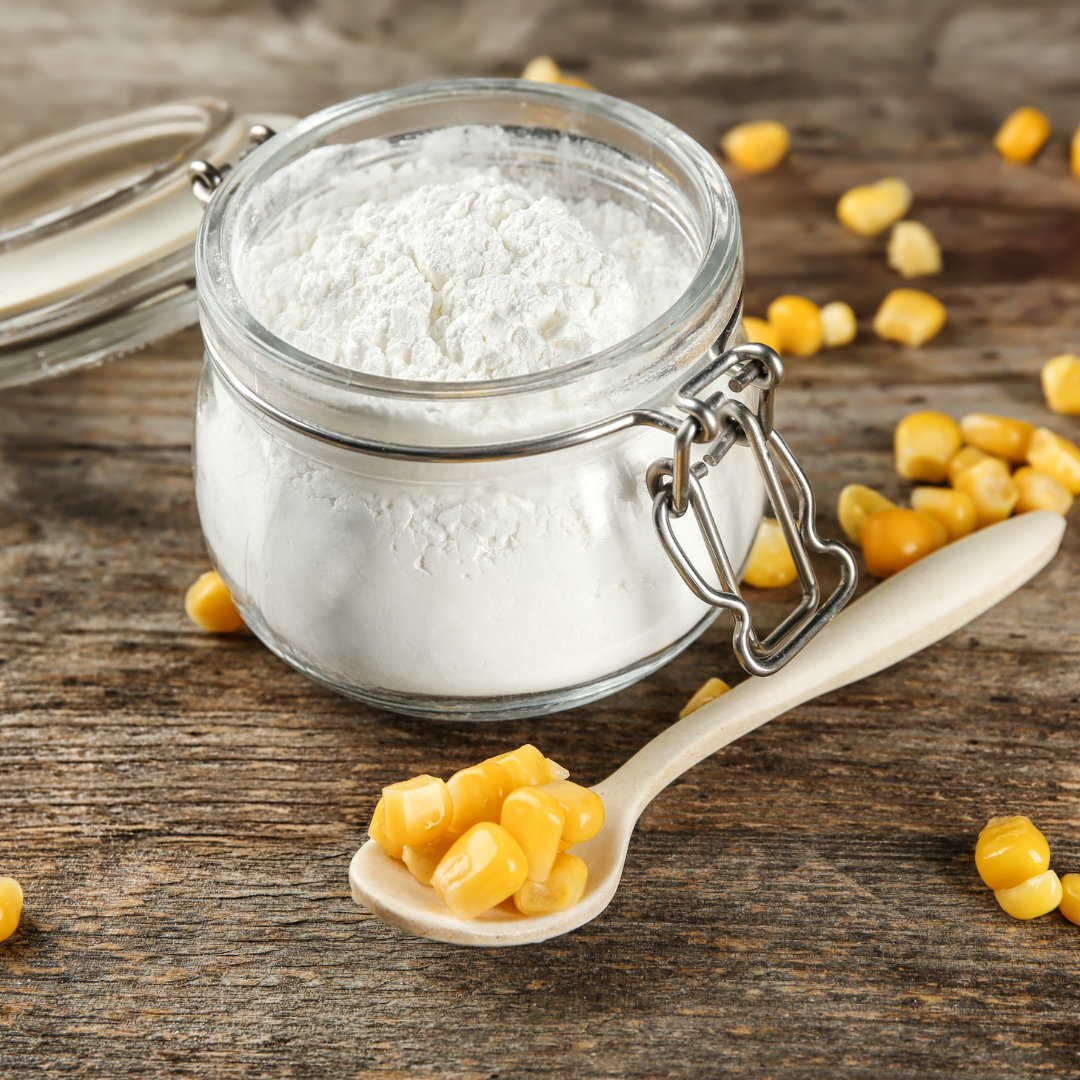


Why is Cornstarch Packaging So Popular
Cornstarch is biodegradable and compostable, meaning it naturally breaks down into organic materials, reducing waste and contributing to soil enrichment.
Derived from corn, a renewable resource, Cornstarch reduces reliance on non-renewable fossil fuels used in plastic production
Cornstarch packaging provides an eco-friendly substitute for traditional plastic packaging, which is notorious for its environmental impact.
Cornstarch is safe for contact with food, making it suitable for a wide range of food packaging applications, both hot and cold.
Consumers appreciate businesses that prioritize sustainability, making Cornstarch packaging a popular choice for environmentally-conscious customers
The production of Cornstarch-based packaging typically generates fewer greenhouse gas emissions compared to conventional plastics.
Cornstarch packaging can be used to create various products, from food containers to cutlery and even packaging materials.

Benefits of Using Cornstarch Eco-Friendly Packaging
Explore why Cornstarch Eco-Friendly Packaging is the smart and responsible choice for your business. It provides a sustainable alternative to traditional plastics, reducing environmental impact. Cornstarch packaging is biodegradable and compostable, contributing to a closed-loop system. By choosing Cornstarch packaging, you actively contribute to a more eco-conscious approach to waste management and demonstrate a commitment to sustainability.
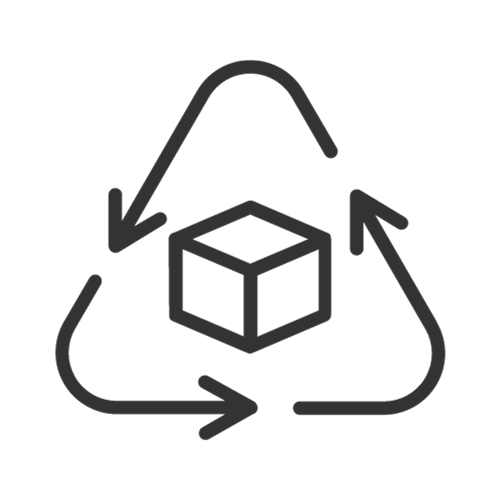
Sustainability
Cornstarch-based eco-friendly packaging is derived from renewable corn resources, reducing our dependence on finite fossil fuels and promoting a more sustainable future.
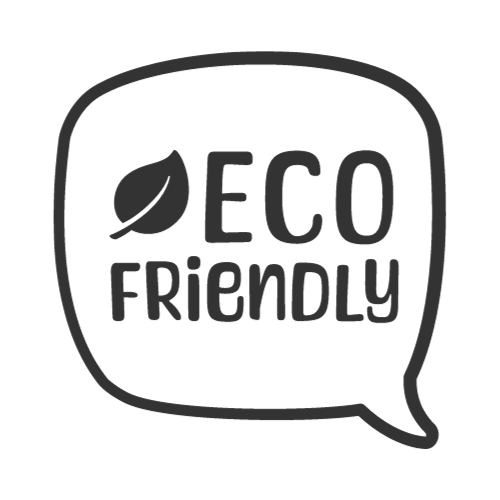
Biodegradability
These products naturally break down into organic materials, minimizing waste and leaving a smaller environmental footprint compared to traditional plastics.

Compostability
Cornstarch packaging can be composted, turning it into nutrient-rich soil that benefits plants and completes a closed-loop system in the natural cycle

Reduced Carbon Footprint
The production of Cornstarch-based items typically generates fewer greenhouse gas emissions, making it a more environmentally friendly choice compared to conventional plastics.

Food-Safe and Non-Toxic
Cornstarch is a natural and non-toxic material, ensuring the safety of both the environment and consumers when used in food-related applications.

Positive Consumer Perception
Choosing eco-friendly packaging like cornstarch products resonates with environmentally-conscious consumers, contributing to a positive brand image.

Versatility
Cornstarch-based packaging can be crafted into a wide range of products, from food containers to cutlery, providing a sustainable alternative to traditional plastics.

Contribution to a Circular Economy
By composting Cornstarch products, you actively participate in a natural nutrient cycle, enriching the soil and minimizing waste in the environment.
How Cornstarch Eco-Friendly Packaging is Made
Cornstarch-based eco-friendly packaging, including bowls and plates, undergoes a straightforward and eco-conscious manufacturing process. Here’s a brief outline of how it’s made

Cornstarch Extraction
The process begins with extracting starch from corn kernels. This is typically done by steeping the corn in water to separate the starch from the other components.

Separation and Purification
The extracted starch-water mixture goes through a series of steps to remove impurities and separate the starch. This may involve processes like centrifugation and drying
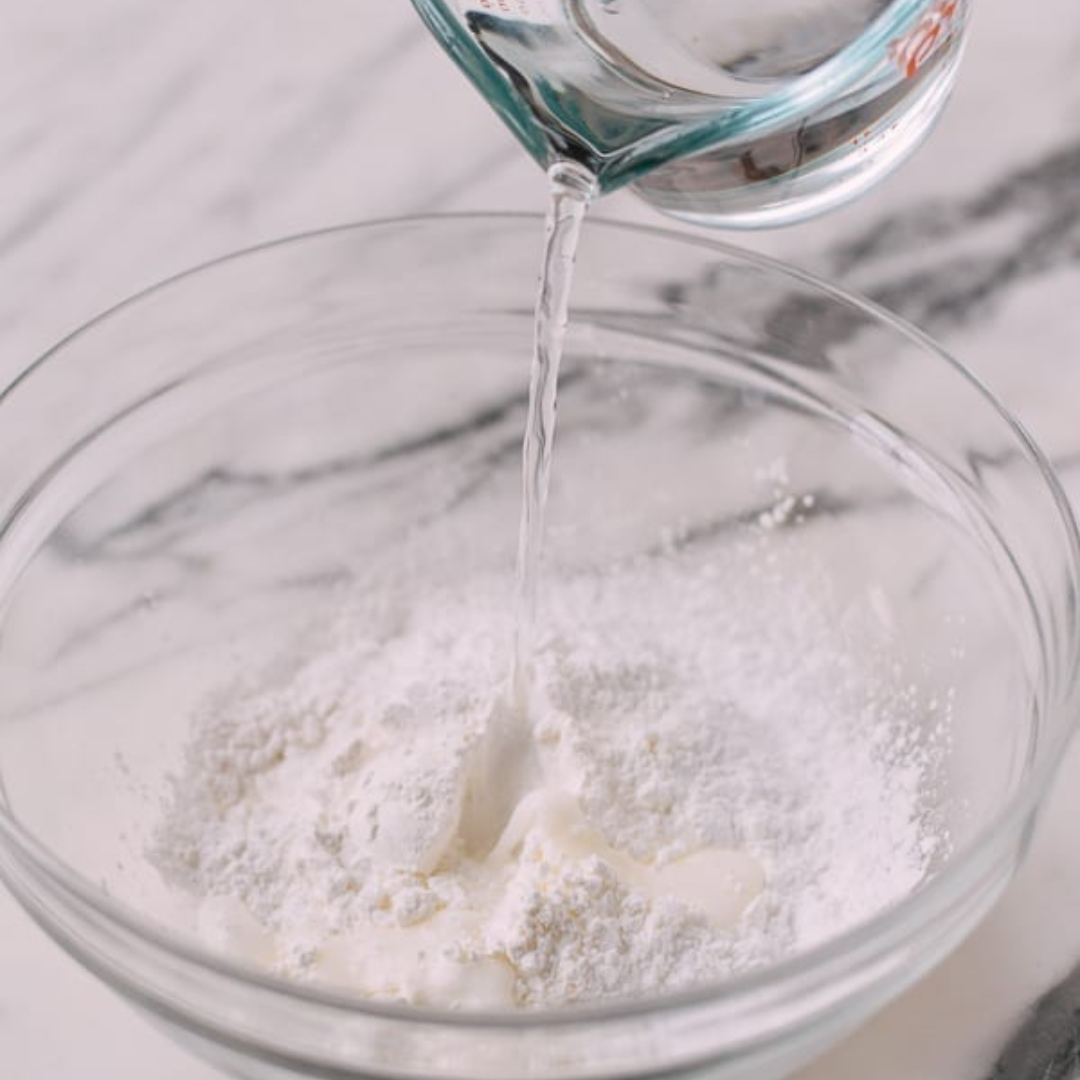
Blending with Additives
Depending on the specific product being created, the extracted Cornstarch may be blended with other natural additives like water and vegetable oil to achieve the desired consistency and properties.

Molding and Shaping
The prepared Cornstarch mixture is then molded or shaped into the desired form. This can be done through various techniques, such as injection molding for items like cutlery or extrusion for sheets and films.

Drying and Curing
The shaped products go through a drying process to remove excess moisture. This can be done through air-drying or using specialized drying equipment. Additionally, some products may undergo a curing process to further enhance their structural integrity
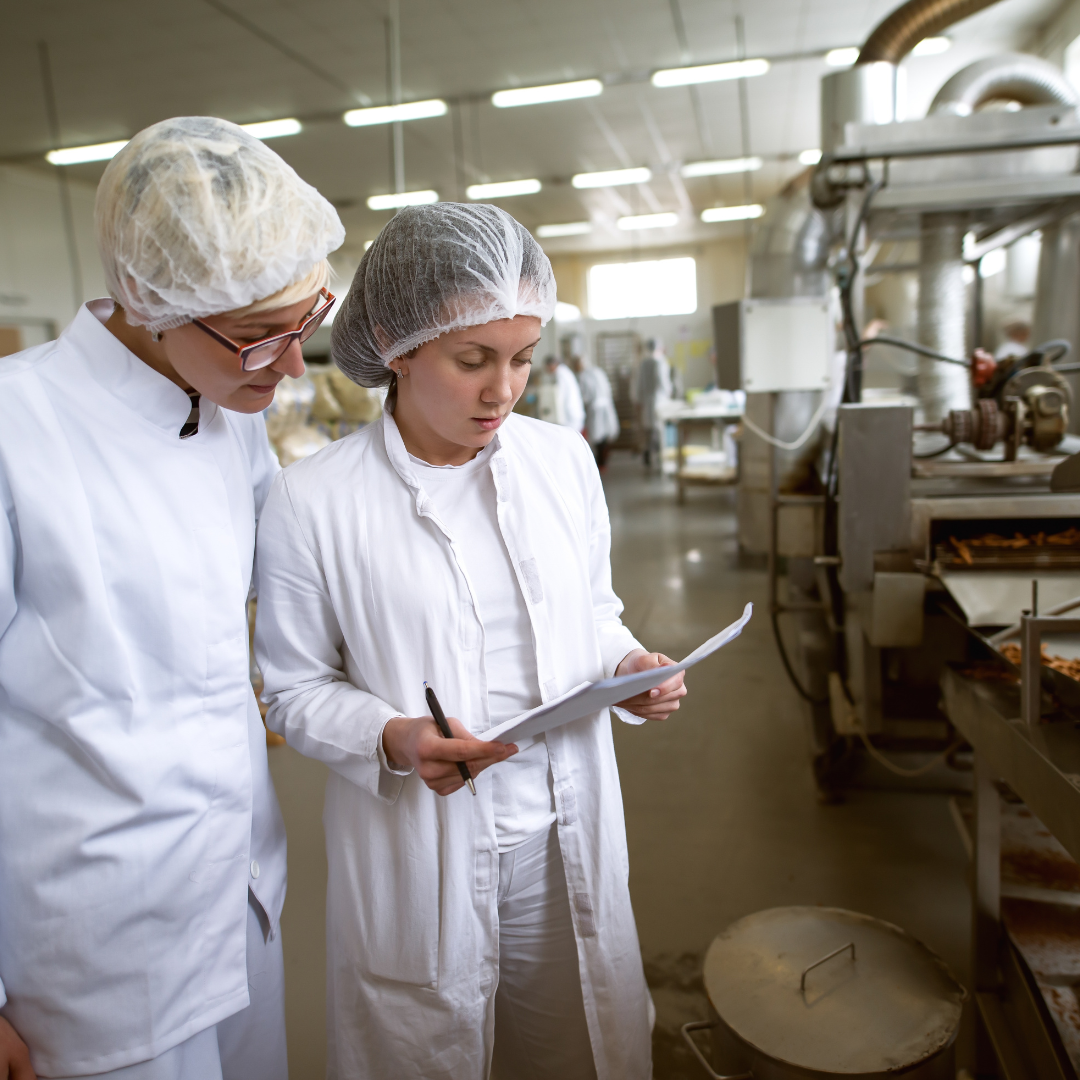
Quality Control
The finished products are subjected to quality checks to ensure they meet specific standards for strength, consistency, and safety.
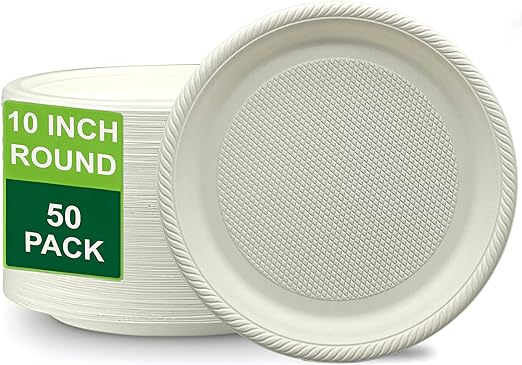
Packaging and Distribution
Once the Cornstarch products pass quality control, they are packaged and prepared for distribution to businesses and consumers.
The inherent qualities of Cornstarch, derived from renewable corn resources, facilitate the production of robust and environmentally conscious packaging solutions.
In essence, the process of crafting Cornstarch packaging is both straightforward and sustainable, potentially fostering economic growth in areas where corn is abundant. These products serve as an eco-friendly and biodegradable substitute for conventional disposable tableware made from materials like plastic or styrofoam.
How cornstarch Decomposes
When Cornstarch-based products, like packaging or utensils, are disposed of in soil or a compost pile, they are exposed to the elements
Microorganisms, such as bacteria and fungi, play a crucial role in the decomposition process. They secrete enzymes that break down complex organic compounds like Cornstarch into simpler molecules.
The first step in decomposition is hydrolysis, where water molecules are added to the Cornstarch polymer chain. This breaks the bonds between the individual glucose molecules, resulting in smaller sugar molecules.
Enzymes continue to work on the smaller sugar molecules, breaking them down further into even simpler compounds like carbon dioxide, water, and other organic materials.
The decomposed Cornstarch fragments mix with the soil. The nutrients released during decomposition become available to plants, enriching the soil.
The time it takes for Cornstarch to decompose depends on various factors, including environmental conditions, microbial activity, and the specific formulation of the Cornstarch-based product. In ideal conditions, Cornstarch products can decompose in a matter of weeks to a few months
Who Buys Cornstarch Eco-Friendly Products?
Cornstarch-based eco-friendly products, including bowls, plates, utensils, and more, cater to a diverse audience committed to environmental consciousness. Here are some key demographics and groups who may find value in opting for Cornstarch eco-friendly products:
- Restaurants and Foodservice Businesses
- Event Planners
- Eco-Conscious Consumers
- Hotels and Resorts
- Caterers
- Corporate Offices
- Educational Institutions
- Non-Profit Organizations
- Food Trucks and Food Vendors
- Organic and Specialty Food Stores
Restaurants and Foodservice Businesses

From renowned restaurants to bustling food trucks, Cornstarch-based packaging offers an eco-conscious solution for takeout containers, cutlery, and single-use items. Its sustainability aligns perfectly with the growing trend of environmentally-aware dining establishments.
Event Planners

Whether it’s a grand wedding, lively party, or professional conference, event planners can make a positive environmental impact by opting for Cornstarch products for food and beverage service. These eco-friendly alternatives align with the sustainability goals of modern events.
Eco-Conscious Consumers

Environmentally-aware consumers looking for sustainable alternatives in their daily lives will find value in choosing Cornstarch-based products for personal use at home. These eco-friendly options contribute to reducing plastic waste in households.
Hotels and Resorts

With a growing emphasis on sustainability, hotels and resorts can integrate Cornstarch-based products into their operations. From dining services to guest amenities, these eco-friendly options align with the eco-conscious choices many guests appreciate during their stay.
Caterers

Embracing Cornstarch-based packaging allows caterers to offer an eco-friendly dining experience. From elegant events to casual gatherings, choosing sustainable options demonstrates a commitment to both quality service and environmental responsibility.
Corporate Offices

Forward-thinking businesses seeking to reduce their environmental footprint can adopt Cornstarch-based products in their office spaces. From break rooms to corporate events, these eco-conscious choices align with the sustainability goals of modern workplaces.
Educational Institutions

Schools and universities striving to promote sustainability can adopt cornstarch-based products in their dining facilities. This eco-conscious choice supports educational institutions in their commitment to environmental stewardship.
Non-Profit Organizations

Non-profits dedicated to creating positive change in the world can further their mission by incorporating cornstarch-based products. These eco-friendly alternatives align with their commitment to sustainable practices and serve as a tangible example of their dedication to both their cause and the environment.
Food Trucks and Food Vendors

Mobile food vendors and food trucks can benefit from Cornstarch products as a sustainable and eco-friendly option for serving meals on the go.
Organic and Specialty Food Stores

These stores, which prioritize quality and sustainability, can enhance their commitment to eco-conscious practices by offering Cornstarch-based packaging. By providing customers with sustainable options, they contribute to reducing plastic waste and support the values of their discerning clientele.
Shop Cornstarch Eco-Friendly Packaging
- Cornstarch
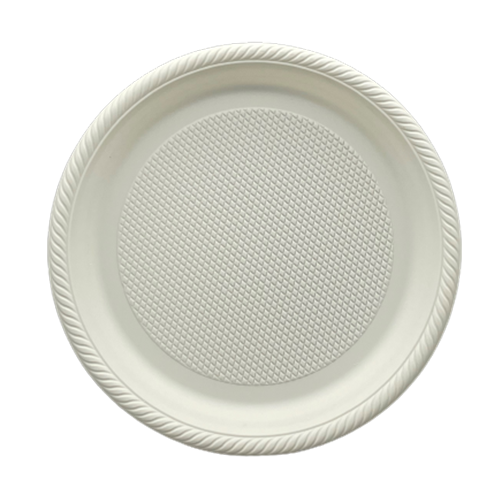
Frequently Asked Questions
Cornstarch packaging, also known as biodegradable or compostable packaging, is a type of packaging material made from cornstarch. It is considered an eco-friendly alternative to traditional plastic packaging. Here are some key points about cornstarch packaging:
Material Composition: Cornstarch packaging is primarily composed of cornstarch, which is derived from the starch in maize (corn) kernels.
Biodegradable and Compostable: One of the key advantages of cornstarch packaging is that it is biodegradable, meaning it can be broken down naturally by microorganisms into organic materials. It is also compostable, which means it can be added to compost heaps and will eventually decompose into nutrient-rich soil.
Environmental Benefits: Cornstarch packaging helps reduce the environmental impact of traditional plastic packaging. Since it is made from a renewable resource (corn), it reduces dependence on non-renewable fossil fuels.
Versatility: Cornstarch packaging can be used to create a wide range of products including bags, food containers, cutlery, and even packaging materials like packing peanuts.
Limitations: While cornstarch packaging is a more sustainable option, it’s important to note that it may not have the same durability and longevity as traditional plastics. It may break down more quickly, which can be an advantage in terms of environmental impact, but it might not be suitable for long-term storage or heavy-duty applications.
Certifications: Look for certifications like ASTM D6400 or D6868, which indicate that a product meets certain biodegradability and compostability standards. This ensures that the packaging will break down under specific conditions.
Disposal: Proper disposal is important for cornstarch packaging to have its intended environmental benefits. It should be composted in industrial composting facilities or home composting systems that reach the required temperature for decomposition.
Availability: Cornstarch packaging is becoming more widely available as demand for eco-friendly alternatives to traditional plastics grows. It can often be found in eco-conscious stores or online retailers.
You can find a diverse selection of cornstarch-based products on the “No More Plastics” website and their dedicated Amazon storefront. This grants you the convenience of choosing from a wide range of sustainable options for your packaging needs. Whether you’re in search of food containers, plates, bowls, or cutlery, “No More Plastics” offers a variety of cornstarch-based solutions to support your eco-conscious efforts.
Yes, Cornstarch packaging is indeed biodegradable. This means that it can naturally break down over time, with the help of microorganisms, into organic materials. This process allows it to integrate back into the environment without causing long-term harm.
Cornstarch products exhibit impressive temperature resilience. They are heat-resistant, making them ideal for hot foods and beverages. Moreover, they also demonstrate commendable cold resistance, ensuring they remain sturdy and reliable even in refrigerated environments. This versatility makes them a practical choice for a wide range of applications.
Cornstarch products should be composted in industrial composting facilities or home composting systems that reach the required temperature for decomposition. Avoid disposing of them in regular trash bins.
Yes, using Cornstarch-based packaging can be an effective way for businesses to reduce their carbon footprint and demonstrate their commitment to sustainability.
Sustainability Solutions Magazine
Stay at the forefront of eco-friendly innovations and practices, empowering your role as an Eco-Friendly Sustainability Manager.
